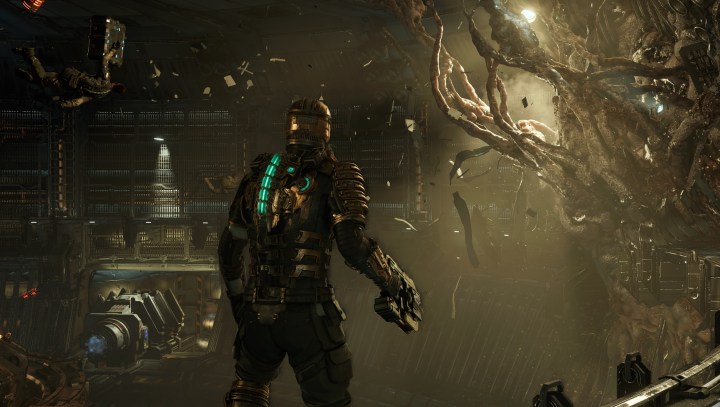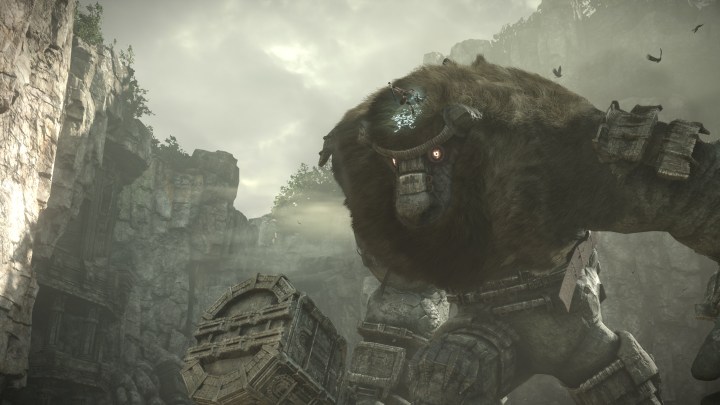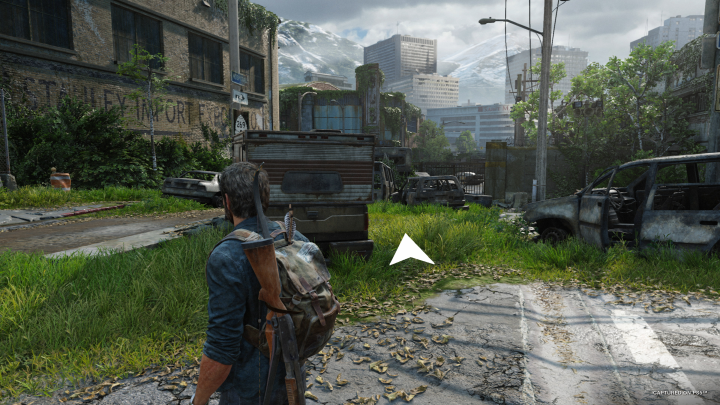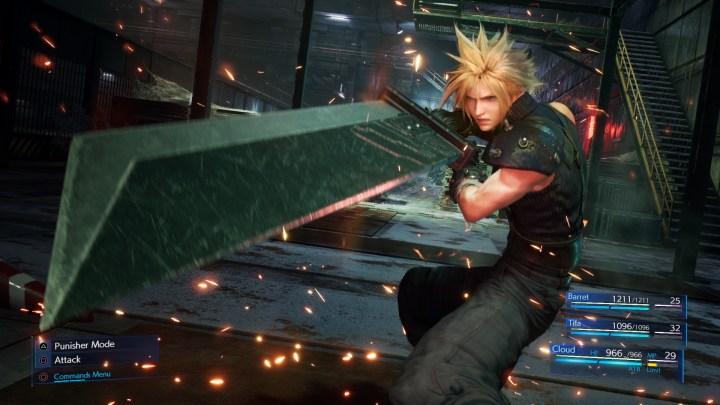The video game industry has remake fever. While the idea of redoing a classic game is nothing new (see something as old as 1993’s Super Mario All-Stars), we’re currently experiencing a wave of remakes as developers revisit some of the best games of the 2000s and beyond. Last year we got The Last of Us Part I and Crisis Core: Final Fantasy Reunion, while 2023 will see games like Resident Evil 4 getting a full redo hot on the heels of Dead Space. Like a Dragon: Ishin, Advance Wars 1+2: Re-boot Camp, Silent Hill 2, System Shock … the list seemingly grows with every passing month.
With so many remakes filling up 2023’s game release calendar, I find myself asking a simple question: Why? That’s not a cynical question directed at the overall concept of remakes, but rather one that’s worth asking on an individual project level. Why is 2023 the right moment to reboot a series? What will this remake do to deepen my understanding of the original game? Are more modern graphics enough to justify a retread into a 15-year-old game that still plays well by today’s standards, or would that time and money have been better spent moving forward?
With studios taking entirely different approaches to their remakes, the answers to those questions can vary from game to game. There’s no singular formula to determine what games could benefit from a second life, but recent projects show us the difference between something that’s additive to its source material and something that’s simply a fun nostalgia trip. There’s no shame in the latter, but games like Final Fantasy VII Remake and The Last of Us Part I show us that revisits can provide so much more than a technical makeover.
Why now?
I began going down the remake rabbit hole while playing Dead Space, EA’s new reimagining of the 2008 horror classic. In my review, I struggled to find what the project offered that I didn’t get out of my first trip to the USG Ishimura. The original Dead Space still holds up remarkably well from a gameplay perspective and its visuals, while dated, are perfectly legible by today’s standards. I had as much fun as anyone stomping necromorph heads in, but I walked away feeling like I’d consumed a product rather than engaged with something deeper.
The 2023 version of Dead Space does bring some notable upgrades to the table. It’s a technical spectacle, it fixes the original’s very dated zero-gravity sections, and its unique content warning system feels truly innovative. But even with newly recorded dialogue, I didn’t get the sense that the remake was interested in pulling more from the original. When speaking to the team behind it back in September 2022, I asked if they felt there was any significance to gaming’s current sci-fi horror wave, noting that horror historically functions as a commentary on social issues. The developers weren’t sure themselves, noting that their approach simply came from “being fans of Dead Space.”

That stands in contrast to Sony’s controversial The Last of Us remake. Though the project largely felt like a way to squeeze more money out of PlayStation’s most acclaimed IP, there were some undeniably strong reasons to return to the game in 2022. Its story resonated differently both in the context of its sequel and an actual pandemic. Though virtually no dialogue was changed for Part I, I still saw existing story beats in a new light due to the timing. HBO’s live adaptation of the series was right around the corner too, giving newcomers an easy way to catch up on the games without jumping through hoops. The technical parity between both games made sure that the two parts seamlessly weaved into one another as well.
We more recently saw Square Enix take a similar approach with Crisis Core: Final Fantasy Reunion. The PSP remake aimed to connect Zack Fair’s story to the world of Final Fantasy VII Remake by giving it a visual boost to match. While that was largely successful, especially as it made a fairly difficult-to-find game playable again, it did leave me asking some questions at the time as Remake tells a radically different story than the original Final Fantasy VII. The new version of Crisis Core links to the latter, but not so much the former.
Even when the goal is simply to bring a dated game up to speed, there’s an art to naturally stitching together experiences separated by decades.
Keeping above the plateau
The most common flavor of game remake focuses on the idea of making an old experience feel modern again. The genius of 2018’s Shadow of the Colossus is that it takes a celebrated PS2 game that hasn’t aged well and makes it look and feel new again with much-needed tech improvements. That allows it to stay faithful to the original, keeping the emotional response of playing it in 2005 consistent with today. We saw an even more drastic version of that this year with Colossal Cave, which transformed an influential text adventure into the fully 3D experience that players perhaps visualized while playing the original.

Dead Space takes a similar approach, though the jump in quality doesn’t quite feel as pronounced due to a technology plateau that began around the Xbox 360 era. That’s something that creators are going to butt up against more and more in the coming decades, as canon games better stand the test of time.
For instance, there are currently rumors floating around that Sony plans to remaster or remake 2016’s Horizon Zero Dawn in some form. While that’s a questionable insider scoop at the moment, the idea of such a project does expose how difficult it’ll be for publishers to justify expensive double dips for games that don’t really need the shine. Despite being a generation old and lacking quality of life improvements present in Horizon Forbidden West, it’s hard to imagine a new version of Zero Dawn radically changing or adding to the experience.
If remakes are going to continue being part of the industry’s bag of profitable tricks, studios may want to seek new ways to justify revisiting relatively modern games. To its credit, Sony had a unique approach to that idea with The Last of Us Part I. The PS5 remake is loaded with best-in-class accessibility features, ensuring that more players than ever could experience its story. That approach alone justified the project’s existence, even if it wasn’t a reason for all players to pick it up. It exists as an important cultural preservation project, keeping a key part of gaming canon accessible to as many players as possible.

A truly great remake can reach those heights, introducing new players to a game rather than just serving existing fans. Accessibility considerations are a key way to accomplish that, but there’s another creative entry point that has largely gone untapped in gaming to this point: the retelling.
Retelling vs. remake
There’s a nuanced difference between remaking and retelling. In a medium like film, it’s common to build on the bones of a preexisting story rather than refilm another shot for shot. Doing so allows writers to recontextualize classic tales, finding a universal truth that still applies to the modern world. Guillermo Del Toro’s Pinnochio doesn’t just copy the fairy tale beat for beat; it offers a searing commentary on how fascism rises to power by taking Pinnochio’s unquestioned commitment to authority to a logical extreme as he’s transformed into a soldier whose trained not to ask questions. Leigh Whannell’s take on The Invisible Man transforms a pulp horror classic into a contemporary story about gaslighting.
In both examples, old stories are transformed into something new. Artists find contemporary threads and pull at them to bring new depth to old work. That practice helps classic stories from getting lost in obscurity, keeping them part of an ongoing conversation.

So far in the medium’s short life span, the gaming industry has proven not to be too interested in examining its stories in that vein, opting for HD remasters or straight remakes instead — though there’s one notable exception. Final Fantasy VII Remake is a true retelling of the original PS1 game, using its general structure and characters to tread new thematic territory. Rather than hit all of the same story beats, it serves as a meta-commentary about the hubris of trying to remake something as beloved as FF7. It takes that pressure and uses it to create a story about testing destiny, as its heroes literally fight to break out of a fate predetermined in 1997. That story gives players a new understanding of the original rather than repeating a story they know inside and out.
Though Final Fantasy VII Remake is the closest video games have come to matching how other mediums handle “remakes,” its polarizing reception might explain why developers aren’t too eager to reimagine older games in that way. FF7R garnered critical praise, but it also had its fair share of naysayers in the form of protective fans who expected a scene-for-scene remake — something Square Enix does plan to accomplish via Final Fantasy VII: Ever Crisis.
If the video game industry is going to explore a more radical approach to remakes, it’s going to require that players be less precious about their favorites (a tall task in a time where an “All Genders” bathroom sign in Dead Space’s remake triggered a tantrum). We have to allow developers creative room to break classic game stories apart and re-examine them through a modern lens. Stories are meant to be retold, not just passed down, bringing new interpretations to classic texts.
And if you don’t like that approach, you can always play the original.
Editors' Recommendations
- Don’t skip over our 5 favorite minigames in Final Fantasy VII Rebirth
- HBO’s The Last of Us show spotlights the series’ best game: Left Behind
- Final Fantasy VII Rebirth and Crisis Core expand the remake universe
- Here are our favorite video games of 2020, from Animal Crossing to Hades
- Players need to re-confirm Final Fantasy VII Remake pre-orders to not lose them



